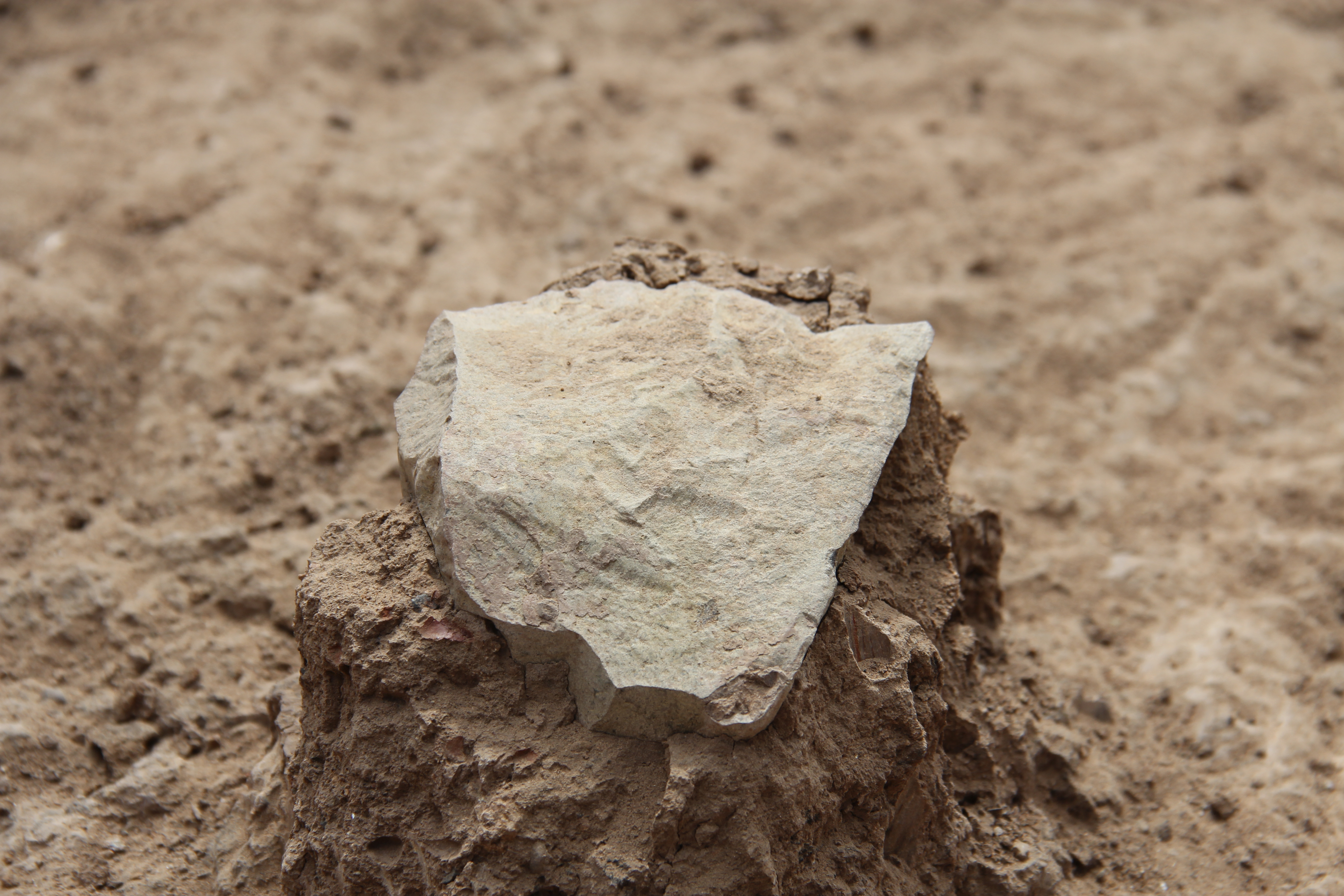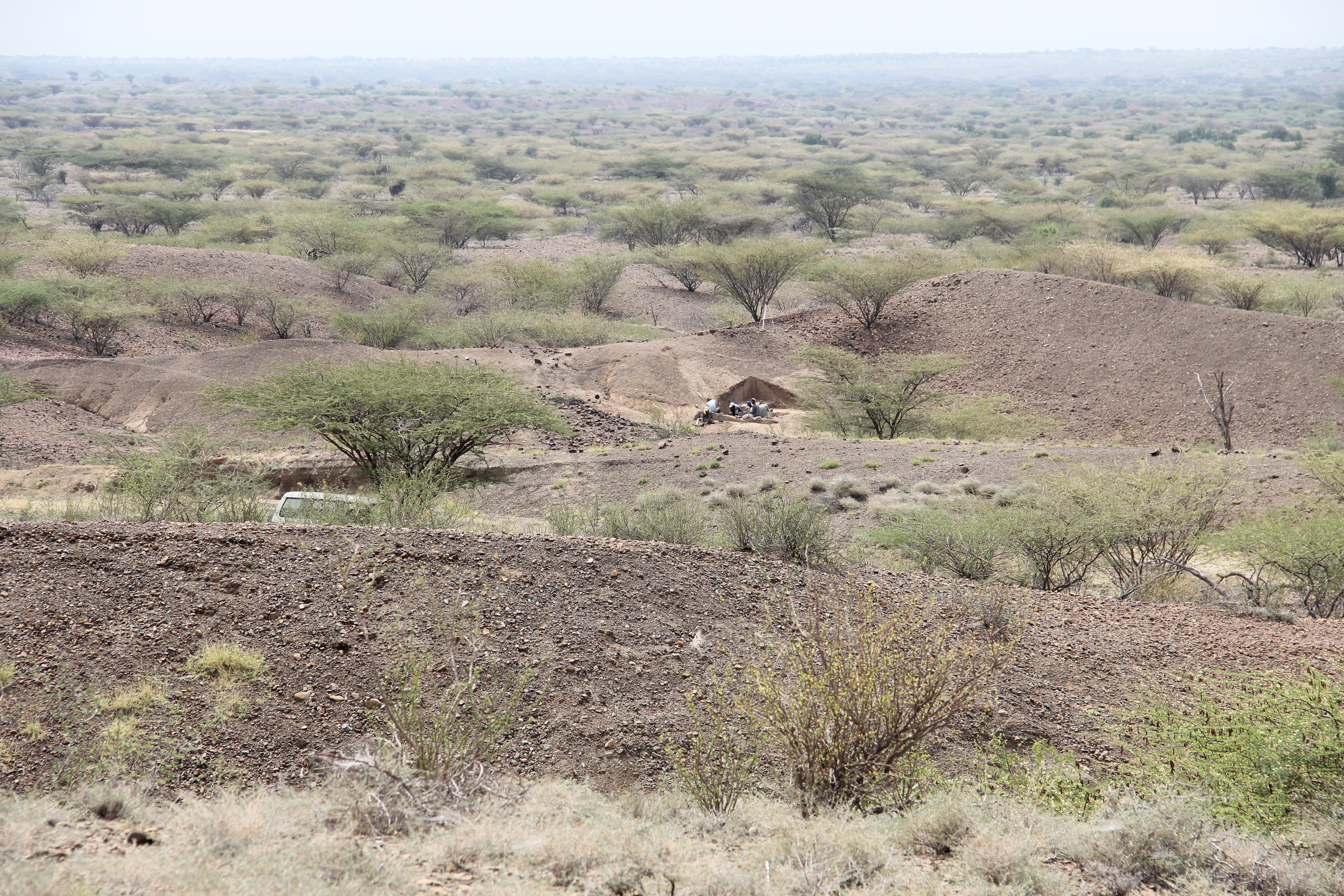
Pictured above is a stone tool made 3.3 million years ago. The tool is in fact so old, it predates Homo, the genus to which humans belong. It seems another early hominid—too different from us to merit the Homo name—must have made it.
An international team of researchers discovered this stone, along with dozens of other tools, in northwestern Kenya. They are publishing a paper about their findings today, in the journal Nature. Before this discovery, the oldest tools archaeologists found were around 2.6 million years old. This pushes back the material evidence for hominid toolmaking significantly. But scientists had long guessed there might be something older than those 2.6 million-year-old contraptions, in part because chimpanzees make stone tools too. Might humans’ and chimps’ last common ancestor have made tools and passed that ability onto both branches of the family? It’s not impossible: Humans’ and chimpanzees’ last common ancestor lived five million to seven million years ago.

Based on the texture of their surfaces, the research team thinks these tools’ makers held a rock in both hands and hit it against something stationary, to chip flakes off the rock, so they could use it like a knife. They might have also placed a rock on an anvil and hit it with another stone to create flakes.
It’s not yet clear who made these flaky stone bits. Was it Kenyanthropus platyops, a hominid species that lived in the same region, at the same time? How about Australopithecus afarensis, the species that the famed fossil Lucy belongs to? In 2010, a separate team of researchers announced they had found fossils of animal bones that bear the markings of a butchering-by-sharp-stones. Those researchers thought the butchers likely were Australopithecus afarensis, but they weren’t sure if the butchers made their tools, or just used rocks that were already sharp. It’s even possible a species scientists haven’t yet discovered made these tools. What is clear, though, is that humanity and our ancestors have been pretty handy for a very long time.
Quick Studies is an award-winning series that sheds light on new research and discoveries that change the way we look at the world.




